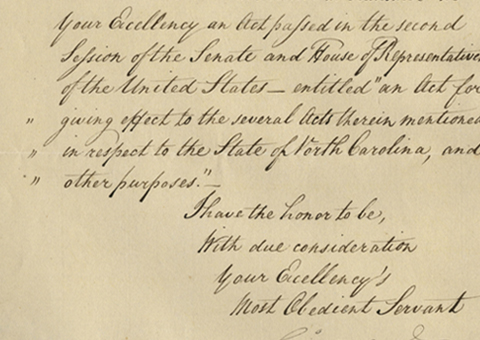First Edition Signed Copy of Tchaikovsky’s Mozartiana, a Deeply Personal Work

Inscribed to the Great Conductor of Tchaikovsky's Own Music.
It was on first hearing Mozart’s Don Giovanni that Tchaikovsky decided to dedicate his life to music. Abandoning his civil service position Tchaikovsky entered the St. Petersburg Conservatory to study. He developed a style that was uniquely introspective, melodic and Russian. Tchaikovsky’s introspective and often tortured nature perhaps give a clue to...
It was on first hearing Mozart’s Don Giovanni that Tchaikovsky decided to dedicate his life to music. Abandoning his civil service position Tchaikovsky entered the St. Petersburg Conservatory to study. He developed a style that was uniquely introspective, melodic and Russian. Tchaikovsky’s introspective and often tortured nature perhaps give a clue to his music. He openly adored the style and grace of Mozart. Although he could escape and find peace and consolation in Mozart his inner turmoil and the tempestuous times in which he lived forced him to ingest and release stirring Romantic creations. Tchaikovsky would, in 1883, write of Mozart, "I do not simply like Mozart, I worship him. For me, the most beautiful opera ever written is Don Giovanni. The longer I live, the longer I get to know him the more I love him. I am amazed that a broken, mentally and morally unsound person such as myself has managed to preserve within himself the ability to enjoy Mozart. In the preface, Tchaikovsky writes: Strangely, a large number of Mozart’s most excellent smaller works are insufficiently known not only to the public, but also to musicians."
In 1887, he finished and performed a new work dear to his own heart, the Mozartiana. As he himself would write inside the program, ""A large number of the more admirable small compositions of Mozart, for incomprehensible reasons, are very little known, not alone to the public, but even to a large proportion of musicians. The author of the arrangement of the suite, having for its title ‘Mozartiana,’ desires to give a new impulse to the study of the little master works which in succinct form contain incomparable beauties."
To carry out this scheme Tchaikosvky has arranged four pieces from Mozart’s least known works, a Gigue, Minuet, Prayer, and Theme and Variations for full orchestra except heavy brasses, which would have been incongruous, and has elaborated them with the highest skill, which changes them from their original graceful simplicity into tone pictures full of a novel charm and color.
The premiere of "Mozartiana" was in Moscow on November 14, 1887. This is a first edition of the dedication program, inscribed to his friend, Max von Erdmannsdorfer. "To my dear friend, Max Erdmannsdorfer, P. Tschaikowsky, 9 Nov. 1887."
It is the fourth of Tchaikovsky’s orchestral suites, Op. 61.

Frame, Display, Preserve
Each frame is custom constructed, using only proper museum archival materials. This includes:The finest frames, tailored to match the document you have chosen. These can period style, antiqued, gilded, wood, etc. Fabric mats, including silk and satin, as well as museum mat board with hand painted bevels. Attachment of the document to the matting to ensure its protection. This "hinging" is done according to archival standards. Protective "glass," or Tru Vue Optium Acrylic glazing, which is shatter resistant, 99% UV protective, and anti-reflective. You benefit from our decades of experience in designing and creating beautiful, compelling, and protective framed historical documents.
Learn more about our Framing Services







































































































